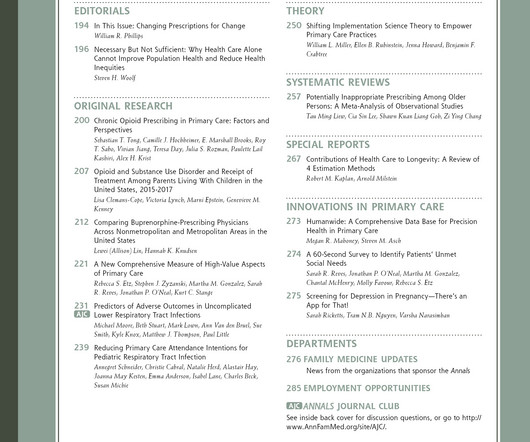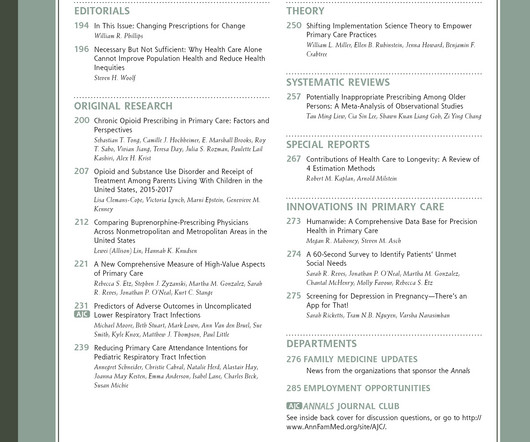Effects of the COVID-19 pandemic on primary care for diabetes in Canada: Results from a mixed-methods study [Health care services, delivery, and financing]
Annals of Family Medicine
NOVEMBER 20, 2024
Population Studied: Using CPCSSN data, we defined a cohort of patients aged 50-105 with diabetes diagnosed before the pre-pandemic period. Qualitative interviews were conducted with Ontario patients aged > 50 with diagnosis of (or receiving treatment for) type 2 diabetes prior to pandemic onset.



















Let's personalize your content